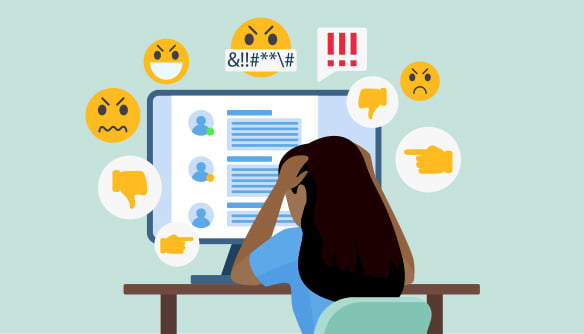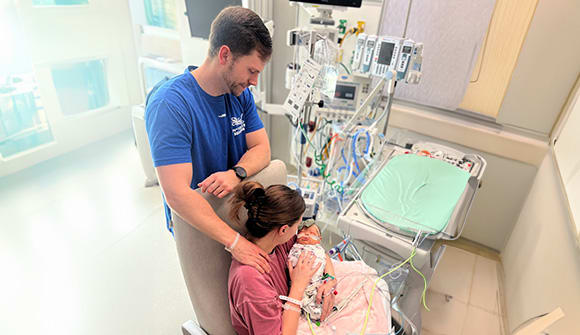Social media struggles
Protecting the mental health of children online.
Article Date:

Concerns continue to grow about the impact social media use has on the mental health and well-being of children and adolescents. According to a new national survey conducted online by The Harris Poll on behalf of The On Our Sleeves Movement For Children's Mental Health, half (50%) of parents of children younger than 18 feel their child(ren)'s mental health has suffered during the past 12 months because of social media use.
Protecting the mental health of children online has also become a conversation outside of the home and on the national level. Platforms like TikTok have introduced new safety measures, and lawmakers have discussed bills that would limit user access to social media.
Impact of social media on children's mental health
In an increasingly digital world, it's important for parents and caregivers to understand the pros and cons of social media use and work to maintain open communication about what children are experiencing online.
Dr. Hoet says not all social media is bad. It can help build a sense of community, relationships, and self-understanding. Yet, during the past year, the survey shows that the number of Americans who say children's use of social media has a positive influence on their mental health has fallen to just over one-third (35%), a drop from 43% in 2022.
To best understand how social media is impacting their children's mental health, On Our Sleeves encourages parents and caregivers to sit down and have regular conversations with their children about how using certain social media platforms can make them feel.
"This is a positive step, but parents can't trust that this is enough," said Dr. Ariana Hoet, clinical director of On Our Sleeves and a pediatric psychologist at Nationwide Children's Hospital. "Social media has the ability to increase anxiety and depression in children when used inappropriately, as well as potentially open them up to inappropriate sharing, hurtful language, bullying and more."
Lead by example for mental wellness
It's important for parents to encourage open communication at home and model healthy social media behaviors, such as putting their own phones away at the dinner table or while spending time with friends and family, said Justin Bollingmo, a licensed marriage and family therapist with Baptist Behavioral Health.
"When parents set the example early by having open, respectful conversations with their children, it sets kids up to have those communication skills later in life," said Bollingmo. "This can help them navigate conflict on their own down the road."
To facilitate these conversations, consistent and open communication is essential. Unfortunately, fewer parents say they're comfortable having conversations with their kids about mental health, a drop of 5 percentage points from 91% in 2022 to 86% in 2023.
Talk to your kids about social media use
On Our Sleeves provides parents and caregivers with free, easy-to-follow guides and tools to start conversations about what's happening on social media and strategies on how to set boundaries and keep them safe.
Experts recommend these ways to engage in conversation about social media:
Ask kids to show you their favorite video, channel or online influencer and follow up with open-ended questions.
Develop a family social media plan to minimize conflict, support good choices, and address misuse. On Our Sleeves has a template that can be modified to meet each family's needs.
Talk to your kids about how to seek help from a trusted adult if they feel unsafe, and discuss which parental controls and settings will be in place for social media use and why.
It can be difficult to balance allowing children to explore social media while avoiding potentially dangerous aspects. Through On Our Sleeves, parents can work to build trusting relationships that allow their children to reap the benefits of social media while minimizing the risk of negative outcomes.
"Be curious about what your child is doing on social media. Taking an active role in their social media engagement, instead of simply limiting their exposure, can help them feel comfortable to ask questions, report concerns and seek help when they need it," Dr. Hoet said.
More resources for talking to your kids about mental health
To learn how Wolfson Children's is getting involved in the On Our Sleeves movement and find additional resources to start critical conversations to promote children's mental wellness, visit wolfsonchildrens.com/onoursleeves.




